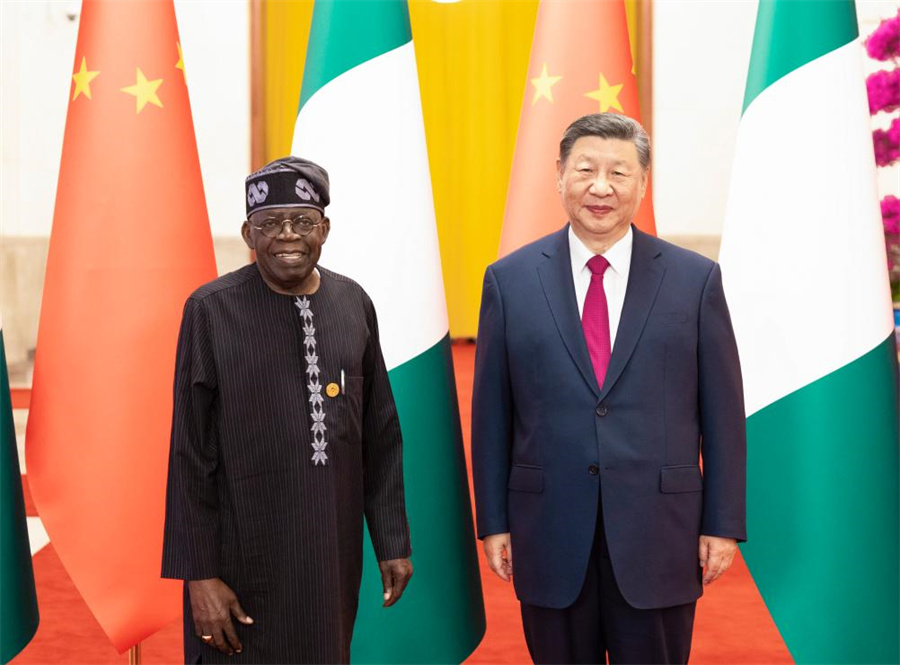Africa stands at a defining moment in its economic history. With the youngest population in the world, fast-growing internet penetration, and a rising entrepreneurial spirit, the continent has become a frontier for digital transformation. The story is no longer about whether Africa will embrace the digital revolution; the question now is how far and how fast this revolution will shape industries, lives, and economies.
Yet, while the opportunity is immense, the path forward is not without challenges. For Africa to position itself as a global hub of digital growth, it requires a deliberate blend of innovation, growth strategy, and international collaboration — particularly with key partners like China, whose digital and manufacturing ecosystems continue to influence global commerce.
As a growth strategist and digital marketing professional, I have seen firsthand how businesses in Africa struggle not because they lack ideas, but because they lack strategy, execution, and scalability. These are the missing links we must address if Africa is to unlock its true digital potential.
Africa’s Digital Transformation: A Rising Wave
The digital economy in Africa is already reshaping traditional industries. From fintech platforms processing millions of daily transactions to e-commerce startups delivering products to doorsteps in Lagos, Nairobi, and Johannesburg, the landscape is rapidly changing.
- Mobile-first economy: Over 75% of internet users in Africa access the web through mobile devices. This has created a massive shift in how businesses market, sell, and deliver services.
- Fintech dominance: Platforms like Flutterwave, Paystack, and M-Pesa have simplified payments across borders, enabling millions to transact seamlessly.
- E-commerce & logistics growth: African consumers are embracing online shopping at record speed. Businesses that once relied solely on physical shops are now building digital storefronts.
This wave of innovation demonstrates Africa’s readiness, but the challenge lies in ensuring these digital sparks ignite long-term growth and not just short-lived ventures.
Challenges Holding Growth Back
Despite progress, several structural and strategic challenges continue to limit Africa’s digital economy:
- Infrastructure Gaps – Internet access remains inconsistent in many rural and semi-urban areas, limiting the scale of digital adoption.
- Trust & Regulation – Consumers remain skeptical of online businesses due to fraud and poor customer experiences. Regulatory frameworks often lag behind technological realities.
- Limited Growth Strategies – Many startups launch but fail to scale because founders focus on building products, not sustainable systems for customer acquisition, retention, and expansion.
In my experience, what often separates successful ventures from failures isn’t the brilliance of the product — it’s the clarity of the strategy and the consistency of execution.
Why Growth Strategy Matters
Africa has no shortage of entrepreneurs. Every city, every community, has individuals with bold ideas. But ideas are only as strong as the growth frameworks behind them.
Growth strategy answers questions such as:
- Who is the ideal customer?
- How do we attract, convert, and retain them?
- What channels deliver the highest ROI for marketing spend?
- How can digital platforms scale sustainably without burning out resources?
For instance, a startup might spend all its funds on building an app but fail to map out a digital marketing plan that ensures the app reaches paying users. Without strategic planning, even the best technology becomes invisible.
This is where digital marketing and data-driven growth systems play a critical role. By using analytics, targeted campaigns, and customer feedback loops, African businesses can scale smarter, not harder.
Africa–China Digital Synergy
China has become a global benchmark for rapid digital adoption and manufacturing efficiency. From platforms like Alibaba and JD.com to super apps like WeChat, China’s digital ecosystem offers valuable lessons for Africa.
- E-commerce infrastructure: African businesses can learn from China’s mastery of supply chain integration, logistics, and customer service.
- Cross-border partnerships: Import-export businesses in Africa already rely heavily on Chinese products. Leveraging this relationship into the digital economy could unlock new opportunities for African entrepreneurs to source, brand, and sell at scale.
- Technology transfer: Collaborations in mobile payments, digital platforms, and smart logistics could help African startups accelerate growth without reinventing the wheel.
The Africa–China relationship should no longer be viewed through a narrow lens of trade imbalance but as a partnership for digital innovation and scalable solutions.
Building Africa’s Digital Legacy
The real question is: What will Africa’s digital future look like?
Here are three priorities:
- Invest in Digital Skills – Beyond consuming technology, Africans must build, adapt, and innovate. Training in digital marketing, software development, and data analytics is non-negotiable.
- Strengthen Trust in Digital Markets – Secure payment systems, transparent policies, and customer-centric platforms will drive wider adoption.
- Think Global, Act Local – African businesses must build solutions that solve local problems while being scalable globally. Just as mobile money scaled across borders, other digital innovations can follow suit.
Conclusion
Africa is not the next frontier; it is the current frontier of digital growth. With millions of young, ambitious minds, a fast-growing mobile culture, and an increasing appetite for digital solutions, the continent has all it needs to thrive.
But to turn this potential into reality, we must move from inspiration to execution. Strategy, innovation, and partnerships will define the businesses that scale and the nations that lead.
The future of Africa’s digital economy is not about catching up with the world; it is about defining a new global standard for digital innovation.
And when that story is written, it will be about entrepreneurs, policymakers, and professionals who refused to let challenges stop them — people who turned vision into strategy, and strategy into growth.
Africa’s time is now.





